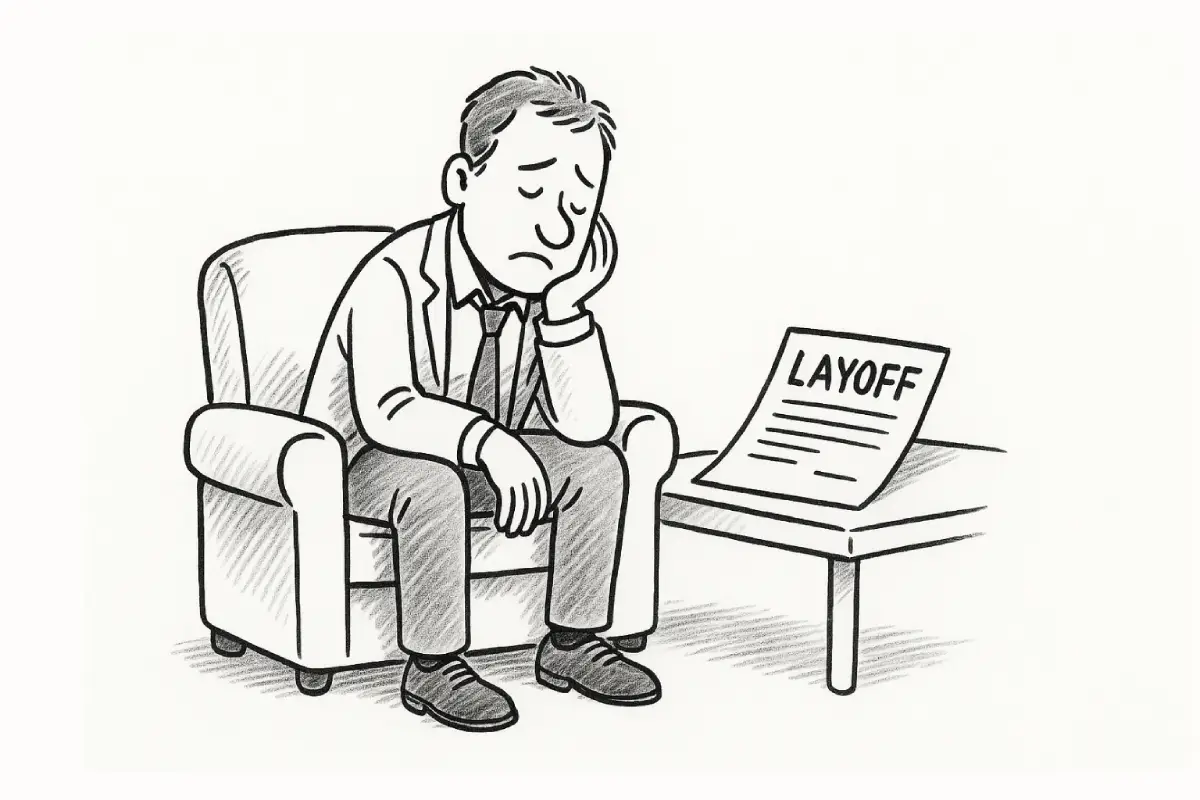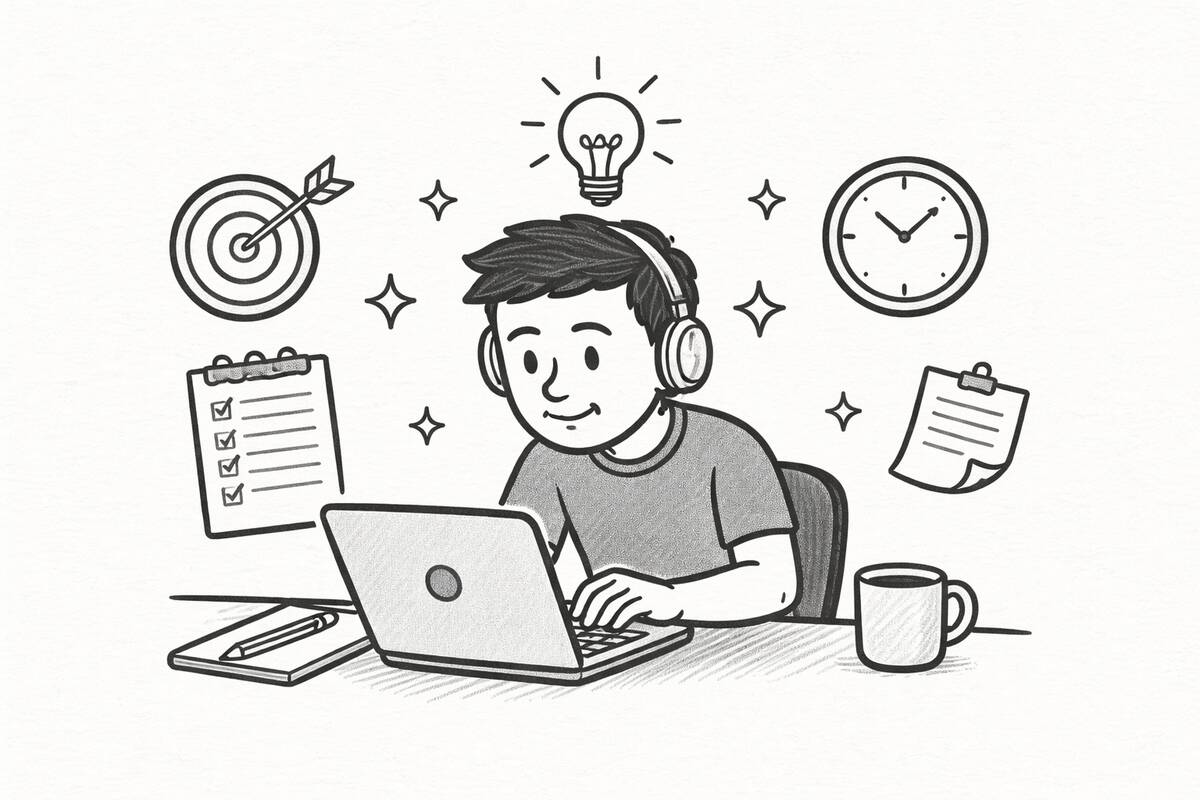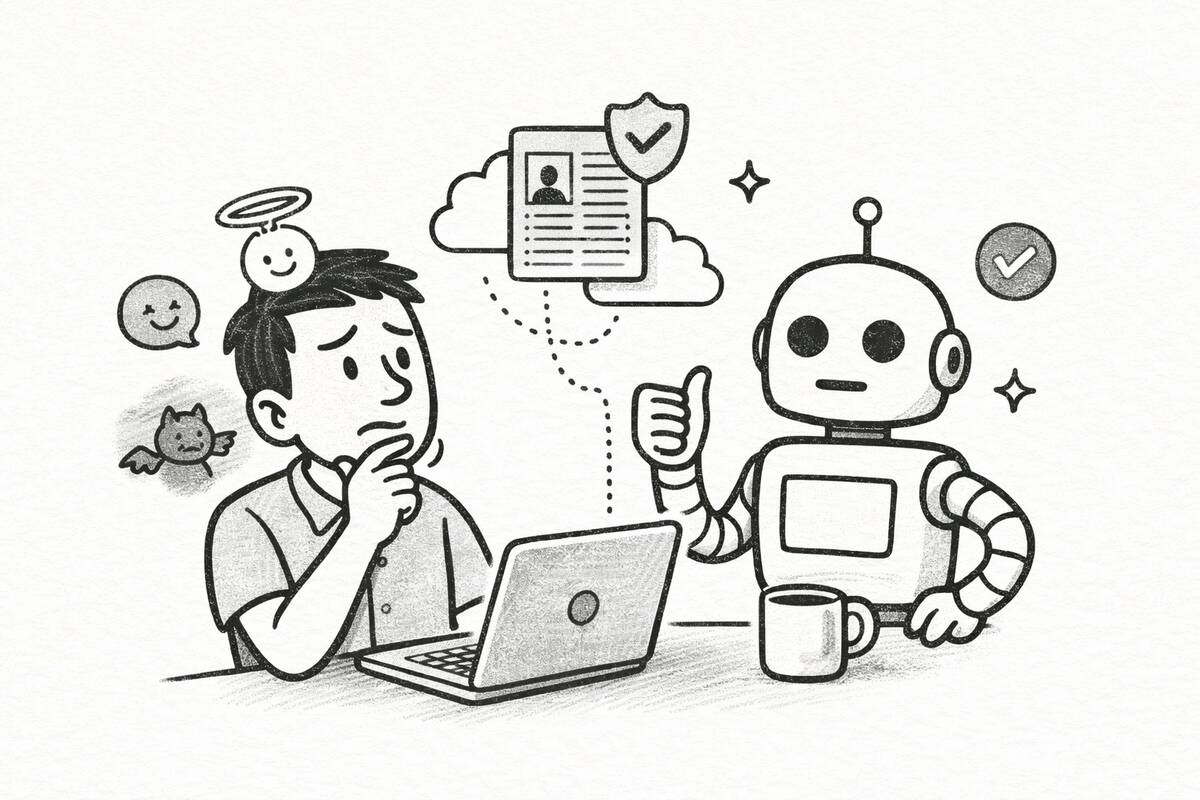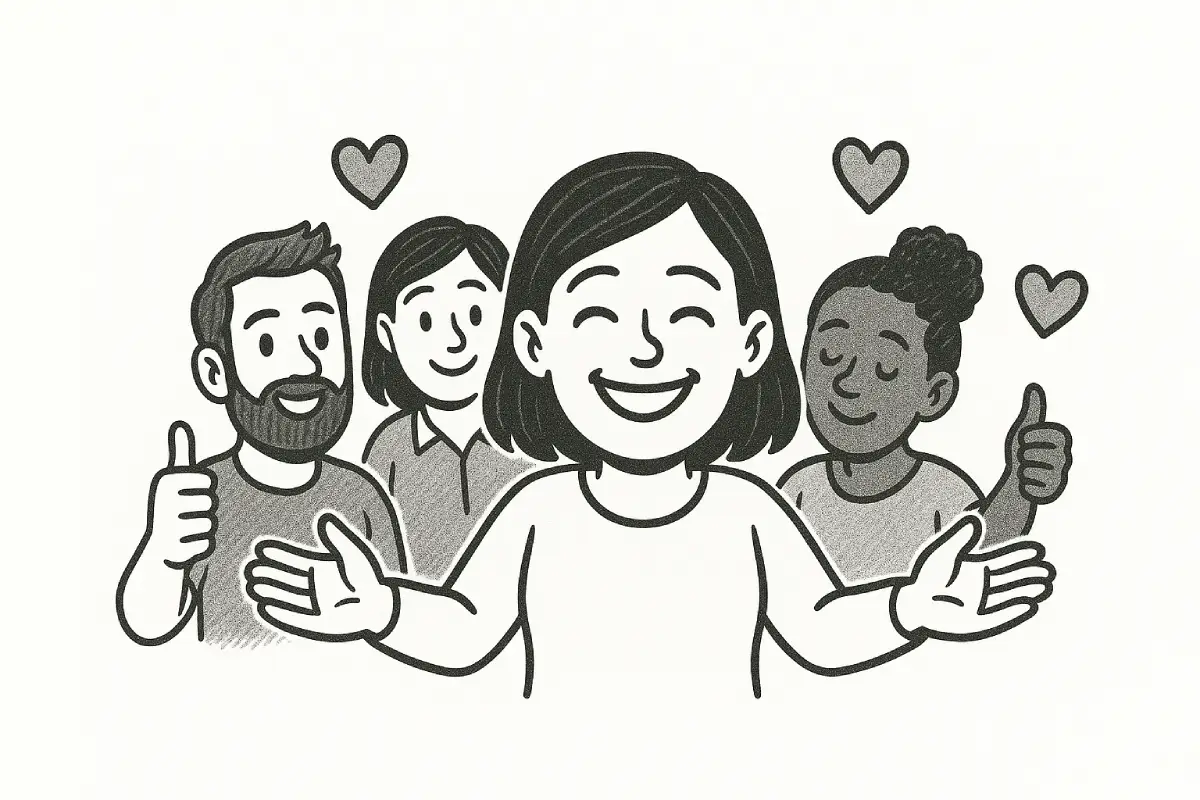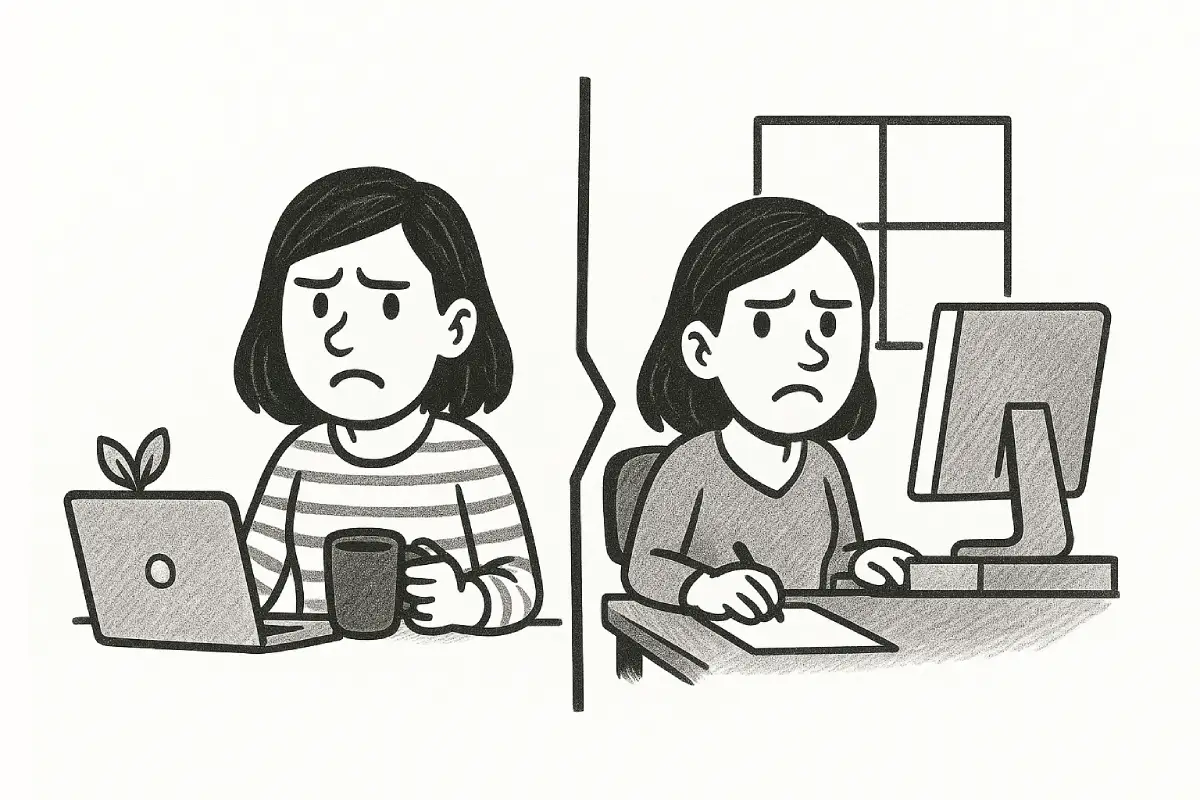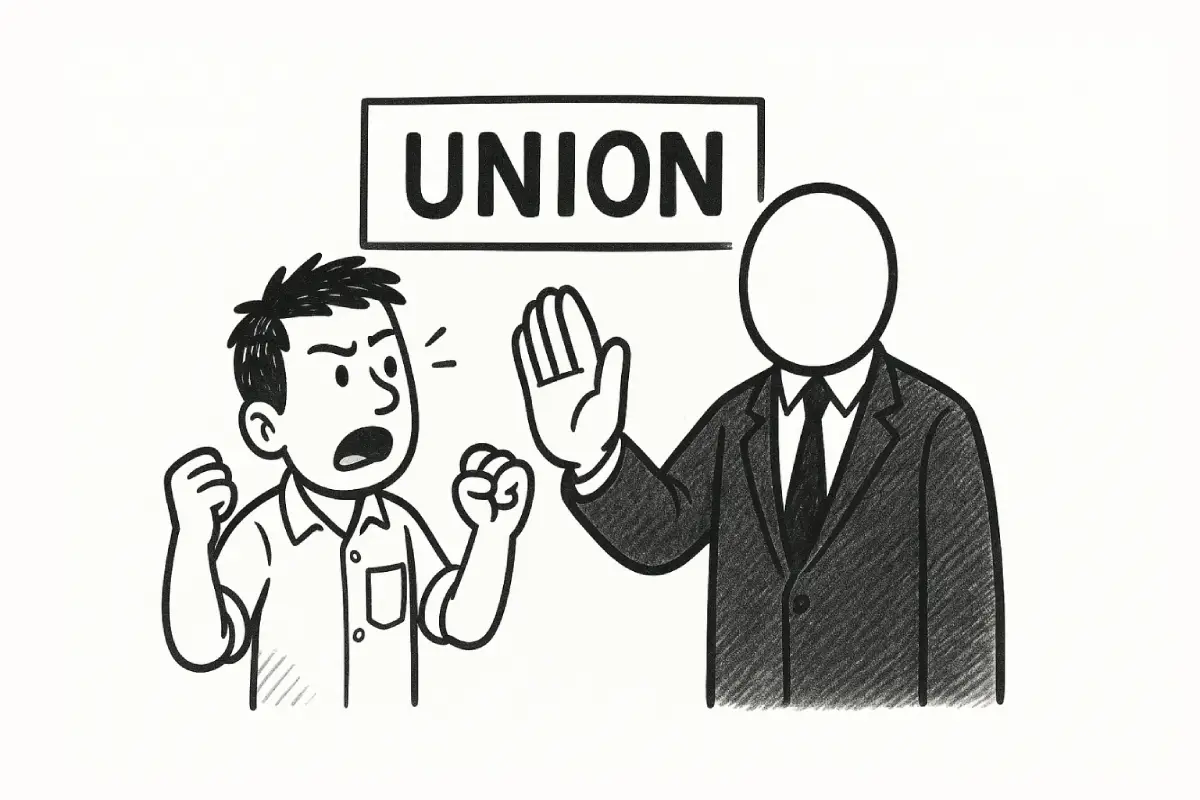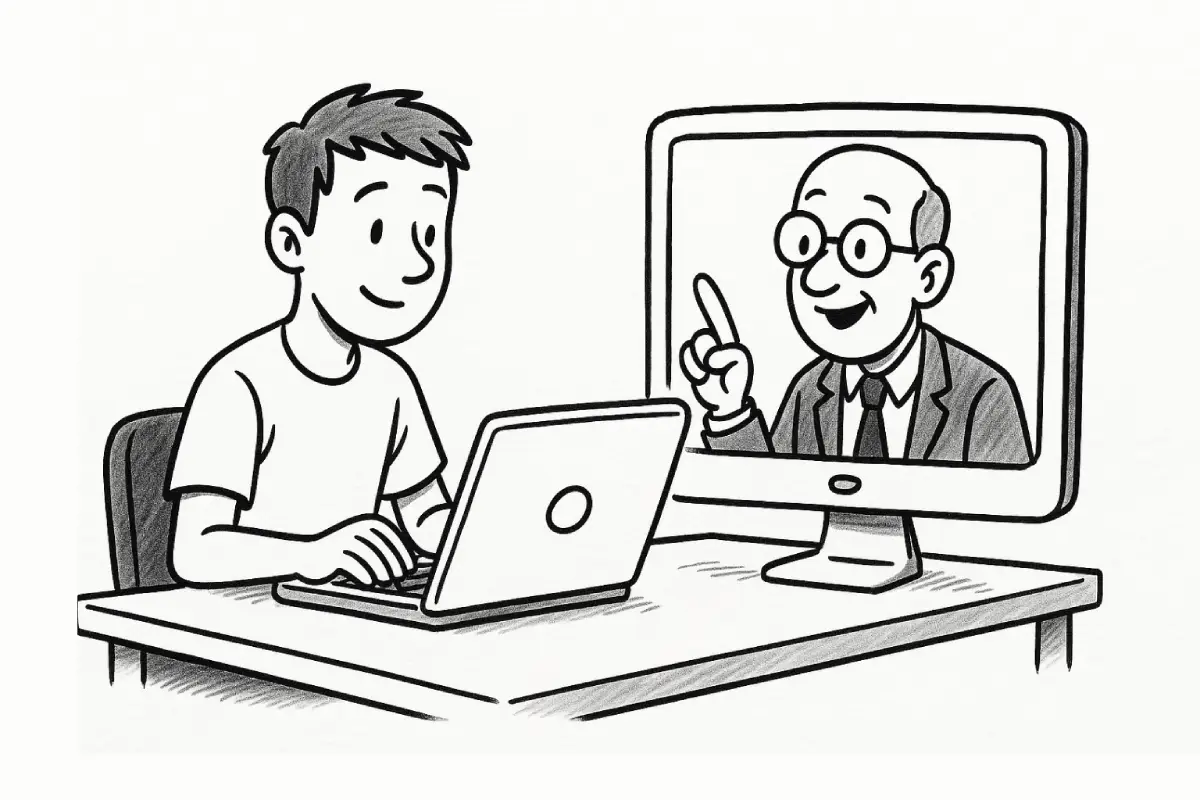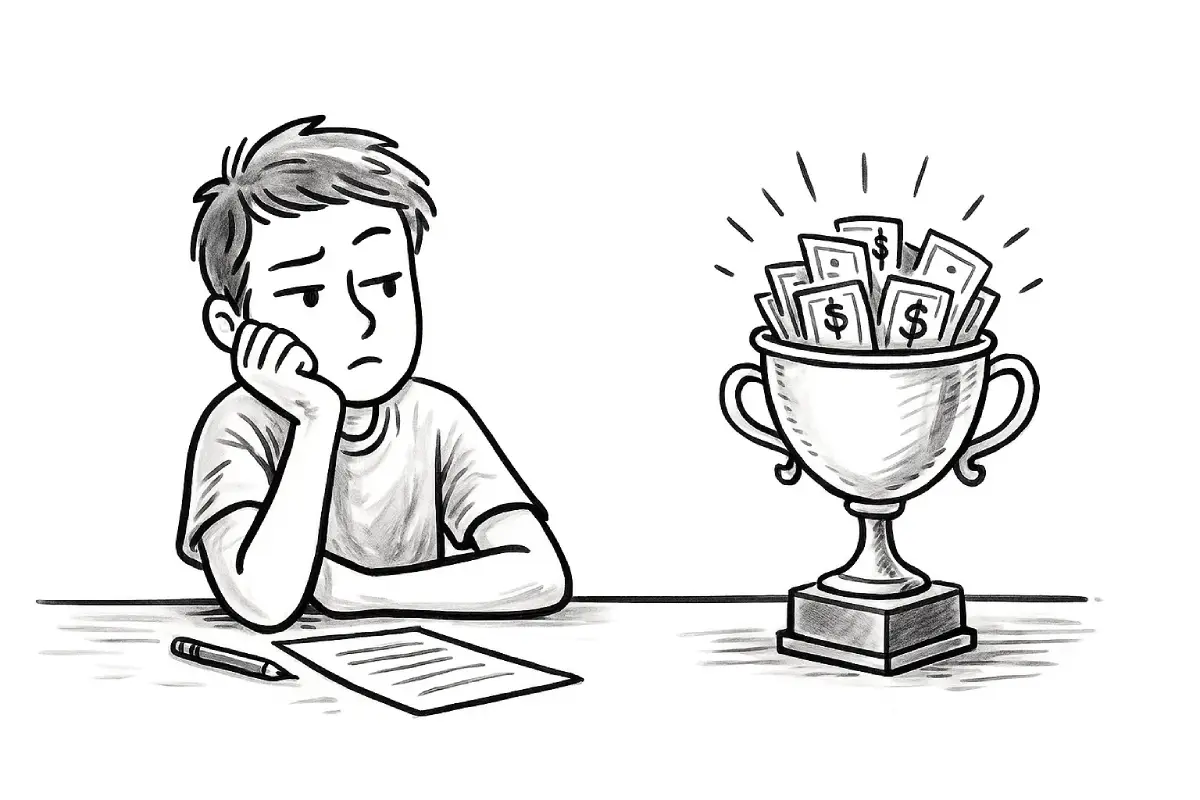The silence that follows a slammed door is a different species of quiet. It’s not the quiet of a library, hushed and reverent, pregnant with the thoughts of others. It’s not the quiet of a pre-dawn morning, soft and feathered with possibility. No. This quiet has teeth. It is a vacuum, pulling the sound from your own lungs, replacing the familiar hum of the office—the distant symphony of keyboards, the gentle murmur of the ventilation, the rhythmic sigh of the printer—with a high-pitched ringing in your own ears. It’s the sound of an ending.
I remember the light in that room. It was aggressively neutral, the kind of flat, shadowless fluorescence that bleaches the color from your skin and makes a lie of the sun outside. It was a light designed for productivity, not for pathos. And yet, pathos was there, a ghost at the table, sitting in the space between my hands, which I had clasped together so tightly the knuckles were white islands in a pink sea. The words spoken to me were smooth, polished stones of corporate jargon—”restructuring,” “synergies,” “right-sizing.” They were words designed to be frictionless, to slide past the heart without catching. But they catch. Oh, they catch. They are burrs on wool, snagging on the delicate weave of your identity, the one you had so carefully constructed, thread by thread, meeting by meeting, project by project.
Confidence is not a fortress. We are told to build it, to shore up its walls, to man its ramparts. But it is not a thing of stone and mortar. It is a living thing. It is a garden, tended in the subtle sunlight of a colleague’s nod, watered by the quiet satisfaction of a problem solved, nourished in the rich soil of purpose. And a layoff is a frost. A sudden, killing frost that happens overnight, while you were sleeping, dreaming of tomorrow’s to-do list. You wake up, and the leaves are blackened and brittle. The stems have collapsed. The ground is hard. And you are left standing in the wreckage of what you grew, wondering if you have the strength to turn the soil again.
The Architecture of Absence
You spend years constructing a life. Not just a career, but a life that is built around its rhythms. The 5:47 AM alarm that chimes like a digital monk. The specific creak of the third stair on the way down to the kitchen. The taste of the coffee, brewed just so—strong enough to cut through the fog of sleep. The commute, a daily pilgrimage with its own rituals: the same podcast, the same faces on the train, the same moment the sun hits the window of the carriage and fractures into a fleeting, mundane rainbow.
These are not just routines. They are the scaffolding. They are the load-bearing walls of your day, your week, your self. And then, one day, they are gone. The entire architecture vanishes. You wake up at 5:47 AM out of sheer muscle memory, and the silence that answers you is cavernous. There is no pilgrimage to embark on. The monk is silent. The scaffolding has been dismantled, and you are left standing in an open field, with no blueprints for what to build next.
Blueprints of a Former Self
Who are you without the title? Without the email signature, the lanyard, the ID card that grants you passage into a world where you belonged? For a time, you are an archaeologist of your own recent past. You sift through the contents of the cardboard box they gave you to pack your life into. A half-used notebook filled with frantic, brilliant ideas that now seem like sketches of a ghost city. A coffee mug with a chipped rim, a gift from a secret Santa five years ago. A photograph of a team you no longer belong to, their smiles frozen in a time that has ceased to exist.
Each object is an artifact. Each artifact hums with a faint energy, a memory of the person you were yesterday. That person had purpose. That person had meetings to attend, deadlines to meet, problems to solve. That person knew the subtle politics of the coffee machine and the unwritten rules of the Friday lunch order. That person had a narrative. And now? The narrative has been abruptly cut, the film snapped in the projector.
I found myself tracing the rim of that mug, again and again. The ceramic was cool and smooth, except for the tiny, sharp geography of the chip. It felt like a map of my own new imperfection. A flaw that had been exposed. I had been a complete, useful vessel. Now, I was a chipped mug. Still capable of holding things, perhaps, but damaged. Less than.
This is the first lie that doubt whispers to you. It is a lie of equivalence. It confuses the role with the soul. It suggests that the stripping away of a title is the stripping away of your intrinsic value. It is a seductive lie, because it offers a simple, albeit painful, explanation for the chaos you feel. The explanation is: it was you. You were the one who was lacking. You were the chip in the ceramic.
The Echo in the Hallway
The initial days are a disorienting blend of freedom and terror. The freedom is a vast, open sea. The terror is that you have no rudder and no sail. The hours stretch, long and taffy-like, pulling and distorting until you no longer recognize their shape. A Tuesday feels like a Sunday. A Friday feels like a Wednesday. Time loses its familiar rhythm, the comforting cadence of the working week.
You find yourself performing the ghosts of old habits. You check your phone for emails that will not arrive. You feel a phantom buzz in your pocket, the ghost of a Slack notification. You walk past your home office, and the empty chair seems to accuse you. It is a throne in exile.
This is the echo chamber of loss. Your mind, accustomed to a constant influx of external validation and professional challenges, turns inward. It seeks a problem to solve, and the most immediate problem is you. Why me? What did I do wrong? What could I have done differently? The questions circle like vultures. And in the absence of external data—the feedback, the performance reviews, the casual “good job” in the hallway—your mind begins to feed on itself. Confidence, starved of its usual nourishment, begins to wither. It is a slow, quiet process, this unraveling. It happens in the spaces between things: between waking and finally getting out of bed, between sending a job application into the void and the deafening silence that follows.
A Topography of Stillness
The world doesn’t stop, of course. The sun rises and sets. The mail is delivered. The world continues to turn, full of people rushing to meetings, complaining about their bosses, living the life you just lost. This dissonance is a unique form of pain. It is a profound and isolating loneliness. You are a ghost in the machine of the living, observing a world you are no longer a part of.
There is a temptation to fill the stillness. To fill it with frantic activity, with a desperate flurry of applications, with endless scrolling through LinkedIn, a digital graveyard of perfect careers and smiling headshots. This is the panic response. It is the thrashing of a swimmer who has forgotten how to float. But if you can resist it, just for a moment, you will discover something profound in the stillness.
Mapping the Uncharted Hours
For the first time in years, perhaps in your entire adult life, time is yours. It is a wild, untamed country that you must now explore. At first, it is terrifying. The silence is loud. The lack of structure is a form of vertigo. But slowly, your senses begin to adjust.
You start to notice things you were too busy to see before. The way the light changes in your living room over the course of a day, a slow, golden pendulum. The intricate, fractal patterns of frost on a windowpane. The sound of a bird you can’t name, singing its heart out in the tree outside. A report from the World Economic Forum might speak of “skills disruption” and the “churn of the labor market,” but it has no language for this—the sudden, shocking gift of the present moment. The data can quantify the macro trend, but it cannot capture the texture of a single, unhurried afternoon.
I started taking walks. Not for exercise, not with a destination in mind. Just walks. I let my feet decide the direction. I found alleyways and parks in my own neighborhood that I never knew existed. I watched an old man meticulously tend his roses. I watched children play with a joyful, unselfconscious abandon. I started to feel the rhythm of a world outside the nine-to-five. It was a slower, more ancient rhythm. The rhythm of seasons, of sunlight, of life unfolding for its own sake.
This is not idleness. This is reconnaissance. You are mapping the new territory of your life. You are rediscovering the person you are when you are not performing a role. You are learning to simply be. And in this being, a new kind of confidence can begin to take root. It is not the confidence of a title or a salary. It is the confidence of your own two feet on the solid ground. It is the confidence of your own senses, taking in the world without an agenda.
The Weight of a Paperclip
The corporate world has its own language of value. It is a language of metrics, of KPIs, of quarterly reports and performance reviews. Your worth is quantified, measured, and displayed on a dashboard. It is easy to internalize this language, to believe that it is the only language of worth.
But there are other languages. There is the language of a perfectly baked loaf of bread, its crust crackling, its aroma filling the kitchen with a primal sense of comfort. There is the language of a paragraph written not for a report, but for the sheer joy of arranging words in a beautiful order. There is the language of a garden, of coaxing life from the soil with your own two hands.
The confidence that was shaken was tied to a specific definition of productivity. A layoff is a chance to redefine it. Productivity is not just about producing deliverables. It is about producing joy. It is about producing connection. It is about producing meaning. That meaning might be found in volunteering, in learning a new skill for its own sake—a language, a musical instrument—or in simply being present for the people in your life.
I bought a block of clay. I had no idea what I was doing. My first attempts were clumsy, misshapen lumps. But the feeling of the cool, damp earth in my hands was grounding. It was real. I wasn’t managing a project; I was making a thing. A messy, imperfect, tangible thing. I made a small, lopsided bowl. It couldn’t hold soup, but it could hold a handful of smooth stones I found on my walk. And it felt like a greater accomplishment than any quarterly report I had ever filed.
Tending to the Invisible Garden
Confidence, the real, enduring kind, is an internal state. It is not something that can be given to you by a manager or taken away by a CEO. The confidence that was lost was an externalized version, a reflection of yourself you saw in the mirror of your job. The layoff shattered the mirror. The task now is not to piece the mirror back together, but to learn to see yourself without it.
This is the slow, quiet work of tending to the invisible garden of the self. It requires patience. It requires gentleness. It requires you to become your own most compassionate advocate.
Seeds of Unknowing
You must allow yourself to not know. The pressure to have a plan, to have a five-year strategy, is immense. It is a vestige of the corporate mindset. “What’s next?” people will ask, their question laced with a mixture of pity and morbid curiosity. The most powerful and confident answer is, “I’m figuring that out.”
This “unknowing” is not a void; it is a fertile ground. It is the space where new possibilities can emerge, possibilities that were unthinkable when you were on your predetermined path. Perhaps the path you were on was not the right one. Perhaps the universe, in its sometimes brutal wisdom, did you a favor. It is a difficult thought to entertain, especially in the midst of financial anxiety and fear, but it is a seed. Water it. See what grows.
You are more than your productivity. You are more than your career trajectory. You were a whole and complete person before this job, and you are a whole and complete person after it. This is the fundamental truth you must return to, again and again. Some research, like that from McKinsey, talks about the need for workers to be resilient and adaptable. But resilience is not about bouncing back; it’s about integrating the fall. It’s about acknowledging the break and healing stronger in that place. It’s not about erasing the scar; it’s about understanding what it taught you.
The First Green Shoot
Confidence does not return like a flood. It returns like the first, tentative green shoot after a long winter. It is a small thing. A moment of genuine, unforced laughter with a friend. The quiet pride in finishing a book you’ve always meant to read. The courage to reach out to a former colleague, not to ask for a job, but to simply ask how they are.
It is the moment you update your resume, and instead of feeling shame for the gap, you see it as a space for breath. A sabbatical. A period of rediscovery. You start to re-read the descriptions of your own accomplishments, and you see them not as things a company owned, but as skills and talents that belong to you. They are your tools. You simply need to find a new workshop.
The world is full of workshops. They may not look like the one you just left. They may be quieter, smaller, more colorful. They may be of your own making.
The confidence you are rebuilding is a different species from the one you lost. The old confidence was conditional, dependent on external validation. The new confidence is quieter, more resilient. It is rooted in the knowledge that your worth is not contingent on your employment status. It is rooted in the discovery that you can survive the frost. You can stand in the quiet, empty field and not be undone by the vastness of it. You can learn to trust the ground beneath your feet again.
And so you stand before a new door. Not the same door, never the same door. This one is different. Perhaps it is made of a different wood, has a different handle. You may not have the key. But you have your hands. You have the memory of the cold, and the newfound appreciation for the warmth. You raise a hand not to knock, but to feel the grain of the wood. To feel the possibility. And you breathe. You are not what was lost. You are what is left. And that is everything.
You might also like: The Mental Health Benefits of Taking a Career Break
